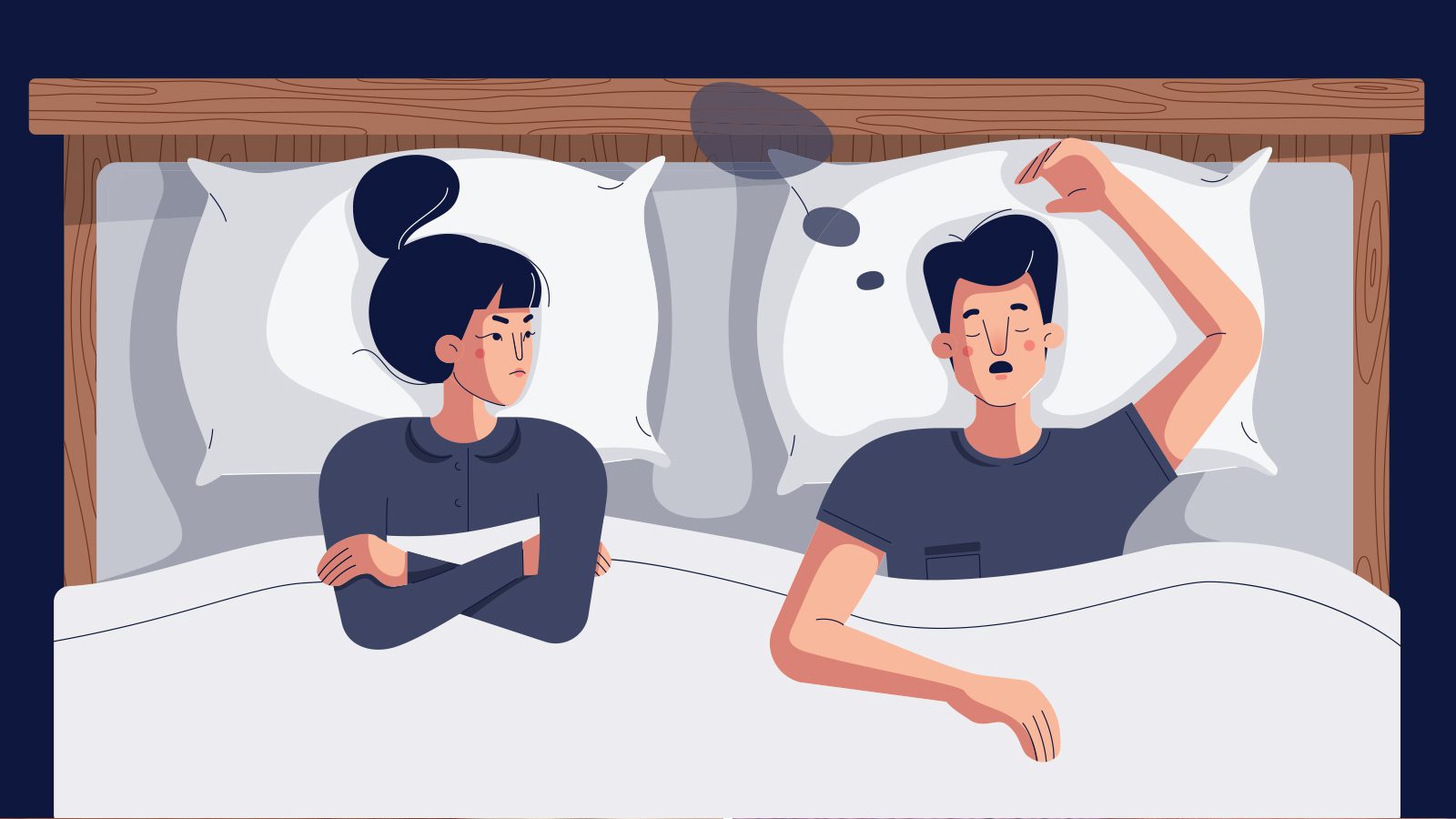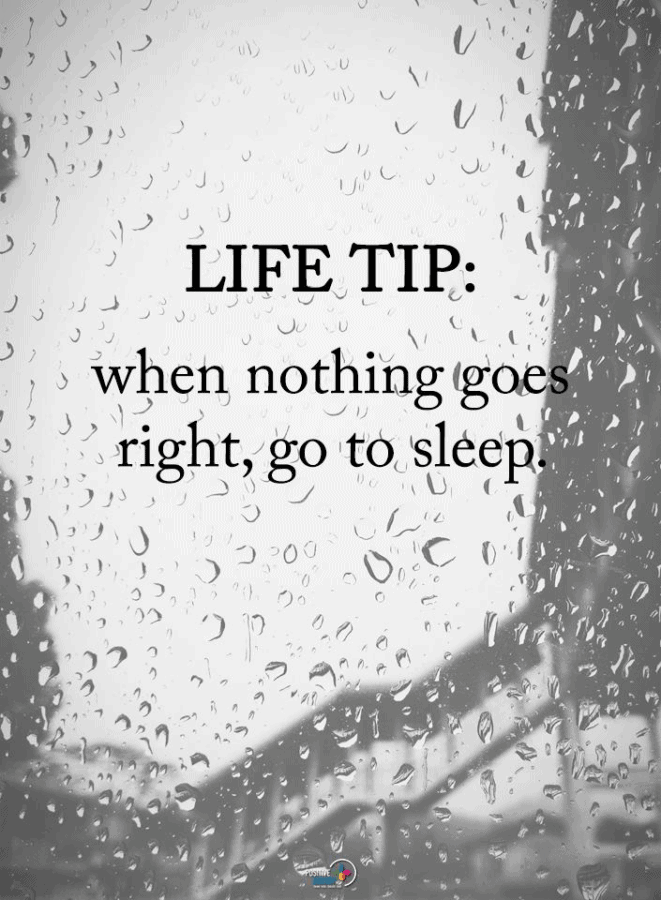Many people complain that modern society encourages selfish behaviors. They might blame social media, materialism, and perhaps the rise of individualism for these self-centered tendencies. But did you know insomnia, a sleep disorder, can also cause people to focus more on themselves?
You’ve probably heard that sleep deprivation can cause many health problems, from heart disease to obesity. Now scientists have learned that lack of sleep can also lead to behavioral issues.
Throughout much of human history, we lived in tribes and helped one another to survive. We still have this basic primitive instinct, but modern lifestyles encourage more competition than cooperation.
People still help one another in the civilized world, of course, but myriad stressors in the environment have dampened this evolutionary trait. One of these stressors includes chronic sleep deprivation, as scientists have found in a recent study.
A study by scientists at the University of California, Berkeley, discovered that insomnia dulls prosocial behaviors. We can see the effects every day, from burnout at work to aggressive driving.
Regarding health consequences, insomnia can cause an increased risk of heart disease, depression and anxiety, diabetes, hypertension, and all-cause mortality. However, the latest study found that insomnia also blunts our social conscience, making us less willing to help others.
In one part of the study, the scientists demonstrated that charitable giving decreased in the week after Daylight Saving Time (DST). During this time, people in most states (aside from Hawaii and Arizona) lose one hour of daylight.
The team found that donations declined by 10% in states that observe DST, indicating a rise in selfish tendencies. Interestingly, this decrease didn’t occur in states that didn’t spring forward or when they returned to standard time during the fall.
Science Explains How Insomnia Can Cause Selfish Behavior
UC Berkeley research scientists Eti Ben Simon and Matthew Walker, a UC Berkeley professor of psychology, led the study. The findings add to the mounting evidence that sleep deprivation harms individual health and weakens connections between people. Lack of sleep can even reduce the altruistic spirit across nations and make people more selfish.
“Over the past 20 years, we have discovered a very intimate link between our sleep health and our mental health. Indeed, we’ve not been able to discover a single major psychiatric condition in which sleep is normal,” Walker said.
“But this new work demonstrates that a lack of sleep not only damages the health of an individual, but degrades social interactions between individuals and, furthermore, degrades the very fabric of human society itself. How we operate as a social species — and we are a social species — seems profoundly dependent on how much sleep we are getting.”
“We’re starting to see more and more studies, including this one, where the effects of sleep loss don’t just stop at the individual, but propagate to those around us,” said Ben Simon. “If you’re not getting enough sleep, it doesn’t just hurt your own well-being, it hurts the well-being of your entire social circle, including strangers.”
The findings appeared in the open-access journal PLOS Biology.
Three Studies Prove the Connection Between Sleep And Selfish Tendencies
The recent report includes three studies analyzing how sleep loss impacts generosity. In the first study, scientists placed 24 healthy participants in a functional magnetic resonance imager (fMRI). They scanned their brains following eight hours of sleep and a night of no sleep.
They discovered that the brain regions that form the mind network theory had less activity after a restless night. This part of the brain becomes active when people empathize with others or try to understand their needs.
“When we think about other people, this network engages and allows us to comprehend what other person’s needs are: What are they thinking about? Are they in pain? Do they need help?” Ben Simon said. “However, this network was markedly impaired when individuals were sleep deprived. It’s as though these parts of the brain fail to respond when we are trying to interact with other people after not getting enough sleep.”
A second study tracked over a hundred people online for three or four nights. During the study period, researchers measured their sleep quality in terms of sleep duration and how often they awoke. Next, the team assessed their willingness and desire to help others by volunteering or holding a door open for someone. This data gave them a good idea of how sleep quality may result in selfish behaviors.
“Here, we found that a decrease in the quality of someone’s sleep from one night to the next predicted a significant decrease in the desire to help other people from one subsequent day to the next,” Ben Simon said. “Those with poor sleep the night prior were the ones that reported being less willing and keen to help others the following day.”
The impact of daylight savings time
Finally, the last part of the study involved analyzing data from three million charitable donations in the US between 2001 and 2016. The scientists wanted to know if the number of gifts changed after Daylight Savings Time. They discovered a 10% decline in donations, but gift-giving did not decrease in the two states that do not follow DST. The data proves that selfish actions increase when people lose sleep.
“Even a very modest ‘dose’ of sleep deprivation — here, just the loss of one single hour of sleep opportunity linked to daylight saving time — has a very measurable and very real impact on people’s generosity and, therefore, how we function as a connected society,” Walker said. “When people lose one hour of sleep, there’s a clear hit on our innate human kindness and our motivation to help other people in need.”
Researchers Say Proper Sleep Can Help Unite People Again
A prior study by Walker and Ben Simon found that insomnia resulted in social withdrawal and increased feelings of loneliness. People become more socially isolated when they don’t get proper slumber, likely because it leads to depression.
Moreover, when sleep-deprived individuals talked with others, their peers also felt more lonely. According to Walker, this indicates that lack of sleep can cause psychological issues that spread to others like a virus.
“Looking at the big picture, we’re starting to see that a lack of sleep results in a quite asocial and, from a helping perspective, anti-social individual, which has manifold consequences to how we live together as a social species,” he said. “A lack of sleep makes people less empathetic, less generous, more socially withdrawn, and it’s infectious — there is contagion of loneliness.”
“The realization that the quantity and quality of sleep affects an entire society, caused by an impairment in prosocial behavior, may provide insights into our societal state of affairs in the present day,” Walker added.
We need to value rest.
The study highlights the importance of prioritizing sleep in modern society. Artificial lighting, technology, and stress have caused people to stay up later during the workweek. But this doesn’t bode well for creating a more compassionate world.
“Promoting sleep, rather than shaming people for sleeping enough, could very palpably help shape the social bonds we all experience every day,” Ben Simon said.
“Sleep, it turns out, is an incredible lubricant to prosocial, connected, empathic, kind and generous human behavior. In these divisive times, if there was ever a need for a strong, prosocial lubricant to enable the very best version of ourselves within society, now seems to be it,” said Walker, author of the international bestseller, Why We Sleep. “Sleep may be a wonderful ingredient that enables the alacrity of helping between human beings.”
“Sleep is essential for all aspects of our physical, mental and emotional lives,” Ben Simon said. “When sleep is undervalued in society, not only do we get sleep-deprived doctors, nurses and students, but we also suffer from unkind and less empathic interactions on a daily basis.”
In developed countries, over 50% of all people report inadequate sleep during the work week.
“It is time as a society to abandon the idea that sleep is unnecessary or a waste and, without feeling embarrassed, start getting the sleep that we need,” she added. “It is the best form of kindness we can offer ourselves, as well as the people around us.”
Final Thoughts on Study Linking Insomnia to Selfish Behavior
Scientists have observed a worrying trend in modern society — an increase in selfishness caused partially by sleep deprivation. We slumber much less than we did even a few decades ago. Technological advancements and long work hours have led to a sleep loss epidemic. Researchers found that the fewer hours people slept, the more selfish and withdrawn they became. However, they believe that educating the public about the importance of getting enough rest could help increase empathy.
















 Community
Community

